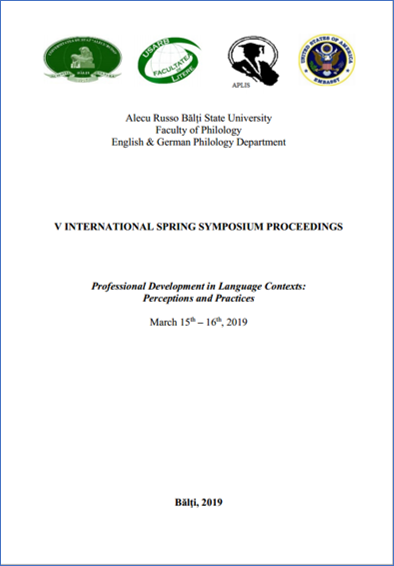THE PRAGMATICS OF COMPLIMENT EXPRESSIONS BETWEEN NATIVE SPEAKERS OF ENGLISH, RUSSIAN AND UKRAINIAN
THE PRAGMATICS OF COMPLIMENT EXPRESSIONS BETWEEN NATIVE SPEAKERS OF ENGLISH, RUSSIAN AND UKRAINIAN
Author(s): José Luis PEREA-HERNÁNDEZ, Anzhelika Solodka, Natalia Romanchuck, Zoya Oganesyan, Svitlana Kushnirenko
Subject(s): Anthropology, Social Sciences, Language studies, Language and Literature Studies, Theoretical Linguistics, Applied Linguistics, Sociology, Morphology, Lexis, Semantics, Language acquisition, Comparative Linguistics, Western Slavic Languages, Cultural Anthropology / Ethnology, Methodology and research technology
Published by: Biblioteca Ştiinţifică a Universităţii de Stat Alecu Russo
Keywords: ethnomethodology; compliments; speech acts; native speakers; compliment expressions; language forms; adjectives; attributes praised;
Summary/Abstract: Pragmatics has been a paramount part in the field of intercultural communication for linguists. It concerns the study of linguistic interaction between people and it analyzes conversation and the speech acts. The present article focuses on the speech acts as a way to express in universal ways and with appropriate knowledge and, namely, on the usage of compliment expressions. We have taken as a basis Manes’ definition of compliments as those speech acts which have the reflection and expression of cultural values because of their nature as judgments, over expressions of approval or admiration of another’s work, appearance or taste. The objective of compliment expressions is to establish or to reinforce solidarity. Many of the values reflected through compliments are personal appearance, new acquisitions, possessions, talents and skills. The conclusions that we have drawn are made on the results that we have got from the online survey that referred to the following variables: compliment form (syntactic patterns), tone used by speakers, compliment frequency, relationship between the compliment speaker and hearer, gender relationship, speakers’ age, and attributes praised. Participants consisted of native speakers of English interviewed in the United States and native speakers of Russian and Ukrainian from all over the Ukraine.
- Page Range: 143-160
- Page Count: 18
- Publication Year: 2019
- Language: English
- Content File-PDF

